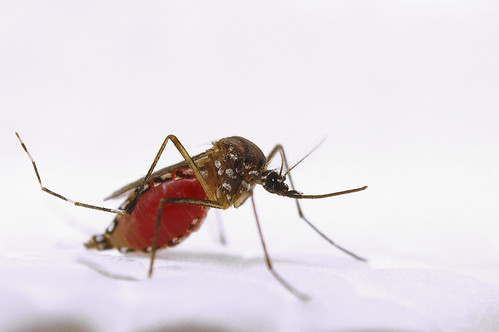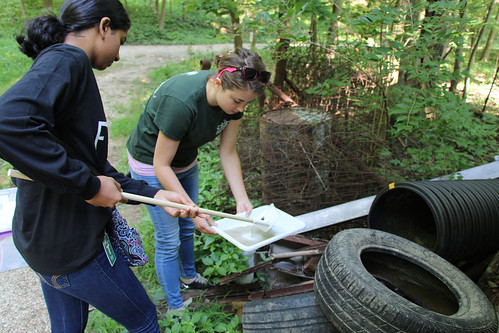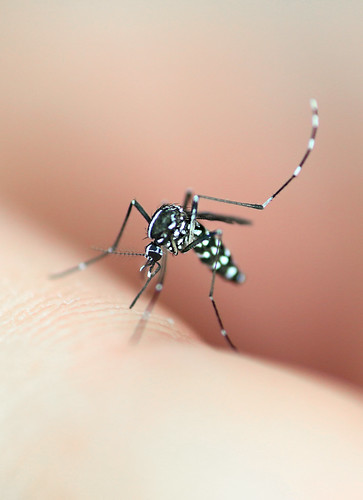
Picture this: It’s evening. The summer’s heat is waning and you’re getting ready to bite into a freshly grilled hot dog, but a lurking predator is close by and about to make a meal of you—a blood meal, that is. You put down the hot dog and swat wildly at the winged attacker before it lands.
Mosquitoes aren’t just a nuisance, though. They can also transmit diseases—from recent headline-grabbing ones like Zika to long-established ones like dengue fever or malaria (of which there were 212 million reported cases in 2015 and 429,000 deaths worldwide).
Standard backyard defenses for the beleaguered homeowners (and guests) include Citronella candles, traps and, of course, a bodily dose of insect repellents like DEET.
But in Peoria, Illinois, a team of Agricultural Research Service (ARS) scientists is testing biologically based approaches to fighting mosquitoes and the diseases they spread. Such alternatives could also help counter mosquito resistance to existing insecticides.
In one project, ARS entomologist Jose Luis Ramirez is evaluating bacteria and fungi that kill mosquitoes by feeding and multiplying inside them. Of roughly 200 kinds he’s examined so far, 10 fungi have proved especially lethal to Culex and Aedes mosquitoes, killing these vectors of the West Nile and Zika viruses in 3-4 days. With his colleagues, Ramirez aims to turn the top microbes into biopesticides that can target all the different stages of the mosquito lifecycle—from eggs and larvae to adults. Additionally, “by combining fungi, we hope to accelerate their kill rate,” says Ramirez.

ARS entomologist Ephantus Juma Muturi, meanwhile, is examining plant compounds that could kill mosquito larvae in aquatic habitats, like storm-water catch basins. Together with University of Illinois professor Brian Allan and University of Maine assistant professor Allison Gardner, Muturi has had early success with infusions steeped from blackberry leaves, which seem attractive to egg-laying mosquitoes but toxic to larvae. Ultimately, “the goal is to come up with a plant-based biopesticide product that’s toxic to mosquito larvae but harmless to the environment,” says Muturi.
Both researchers say such products are several years away from commercial development and use. Don’t expect a magic bullet, either. Fighting mosquitoes takes multiple weapons and precautions. So cover up, drain the kiddie pool and take a well-aimed swat if need be!



